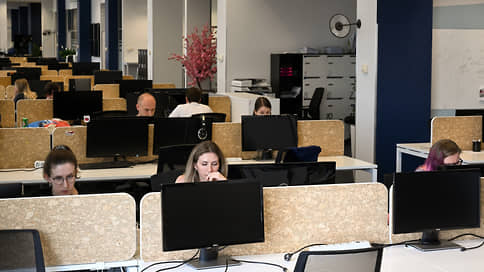What’s in my office for you – Economics – Kommersant
[ad_1]

The Supreme Court of the Russian Federation (SC) will decide whether a business may not classify as office premises that are used to accommodate staff and are not rented out for profit. This is important for calculating the property tax, a benefit for which can be obtained if the object has a non-office and retail purpose. A precedent for business decision will be made as part of a dispute between Sberbank and the Moscow authorities. Lawyers say that the Supreme Court may revise the existing approach in practice and then many enterprises will lose benefits.
The Supreme Court will consider the dispute on how to determine the purpose of the organization’s real estate. The case is important because it affects taxation.
The tax rate on the property of organizations is in the range of 2–2.2%, but the main question is how much it should be calculated from. The most expensive are real estate intended for offices, retail premises or catering, since it is assumed that the owner makes a profit. For them, the Tax Code of the Russian Federation (TC) provides for the calculation of the cadastral value close to the market value. For other objects (mainly production facilities and warehouses), the tax is calculated from the average annual value, which, as a rule, is several times less than the cadastral one, since it is based on the residual value of the property.
Each region, based on the purpose of the premises or building, annually draws up a list of real estate objects subject to tax on the cadastral value.
Special authorities check how the property is actually used, based on the results, the list can be adjusted or a tax exemption is provided.
In Moscow, inspections are carried out by the State Inspectorate for Control over the Use of Real Estate. If the taxpayer does not agree with the inclusion of the object in the list of taxable according to the cadastre, he can challenge the decision in court.
This is exactly what Sberbank did, which was not satisfied with the decision of the state inspectorate, which recognized its building at 10с1 Raspletin Street as an office building. The agency decided that offices account for 68.5% of the area and that the whole building is used for commercial purposes. This deprived the bank of the right to a 75% benefit, which is given by the Moscow law “On Corporate Property Tax”: if the premises are actually used for an office by less than 20%, then the business pays only a quarter of the tax.
Sberbank challenged the conclusion of the state inspectorate, the arbitration courts of the Moscow District satisfied his claim, considering that the offices equipped in the building do not in themselves make the premises office premises if they are used by the organization “for their own statutory and administrative purposes and are not rented out.”
At the same time, the courts clarified that “institutional premises designated as “office” are not identical to the concept of “office”, the latter implies the conduct of “independent business, administrative or commercial activities in it, not directly or indirectly related to the provision of production activities of the enterprise.”
The State Inspectorate no longer agreed with this, having applied to the Supreme Court. The agency considers it erroneous to conclude that the building and the premises in it “should have an independent office purpose.” According to the state inspectorate, “administrative use” is sufficient. The controversial building houses a Sberbank branch with cash desks, customer booths, operating rooms, meeting rooms, storage facilities, etc. That is, the areas are mainly used to work with clients, the state inspectorate explained, and the bank’s activities are aimed at making a profit. Based on these arguments, the dispute was referred to the Economic Board of the Armed Forces, the hearing is scheduled for March 1.
Sberbank and the State Inspectorate declined to comment.
Orchards partner Yuri Aksenov says that such disputes are not uncommon in practice, the key evidence in them is just the conclusions of the inspection bodies. The issue of applying the exemption to the premises where the taxpayer’s employees who carry out current activities are located “is urgent and needs to be resolved,” confirms Denis Kozhevnikov, Counsel for Tax Practice at MEF Legal. The state inspectorate in Moscow is being sued by “companies from various sectors, most often manufacturing organizations with plant management,” adds Taxology partner Alexei Artyukh.
The main problem is that the law does not have a clear definition of an office and it is not always clear by what criteria objects are included in the list of taxable ones at a higher cadastral value, Mr. Artyukh explains.
But the court practice of recent years, according to him, has been in favor of business: “The arbitration courts supported the logic that the full rate of tax must be paid in case of renting out premises for offices, and when placing administrative personnel without deriving rental income, there is a right to benefit.”
Now everything can change. The Supreme Court considered the arguments of the state inspectorate worthy of attention, Mr. Aksyonov emphasizes, and if the collegium consolidates the approach, this will “narrow the field of opportunities for tax optimization.” Denis Kozhevnikov agrees that the position of the Supreme Court “will be of decisive importance for business and, if the arguments of the state body are supported, it can put an end to the series of disputes considered in favor of taxpayers.”
[ad_2]
Source link






